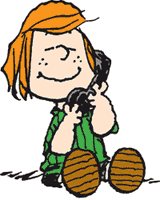| | |
| |
19 april 2007 15:26 |
| | Ahi, questo mi coglie impreparato... |
| |
19 april 2007 15:30 |
| | Lo siento, no sé explicarme muy bien en inglés, se le llama sturkon a un tipo determinado de caballos que hay en Asturias, a lo mejor la palabrita forma parte del peculiar español de Asturias donde tienen palabras que forman parte de un dialecto llamado "bable", es decir no es español, ni catalán, ni gallego, ni euskera. Espero haberte ayudado. |
| |
19 april 2007 15:35 |
| | Non è questo il punto... Guarda qui... |
| |
19 april 2007 15:53 |
| 
appleAantal berichten: 972 | Io tendo a dar ragione ad acuario, anche per il fatto che il richiedente credeva che la parola fosse in spagnolo o catalano, quindi l'ha sentita in un contesto spagnolo. |
| |
19 april 2007 16:07 |
| | Se l'avesse sentita in un contesto spagnolo magari l'avrebbe capito che è una razza di cavalli... Va', chiedo a demian... |
| |
20 april 2007 05:48 |
| | I don't know what you guys said in Italian, but here's a website that mentions the horse in English.
|
| |
20 april 2007 07:15 |
| | But the word is "sturkon", not "asturcon" or "Asturian". |
| |
20 april 2007 08:29 |
| | ASTURIANO ES UN GENTILICIO DE LAS PERSONAS QUE VIVEN EN ASTURIAS NO TIENE NADA QUE VER CON ASTURCON. SUPONGO QUE LAS PERSONAS QUE VIVEN EN NAPOLES, SON NAPOLITANOS Y NO TIENE NADA QUE VER CON EL DULCE, O ES LO MISMO UNA PERSONA QUE UN DULCE, PUES ESO NO ES LO MISMO UN CABALLO QUE UNA PERSONA. |
| |
20 april 2007 13:47 |
| | I don't think they're called sturkons in English.
As to acuario's message, that's nonsense. Many animal breeds have the name of the people who raised them. I can think of two horse breeds off hand, and I'm not even a horse afficionado: Arabians and Mongolians. |
| |
20 april 2007 13:52 |
| 
appleAantal berichten: 972 | But, acuario, did you go to the link kafetzou gave? Do those horses look as they are in that link?
|
| |
21 april 2007 02:22 |
| | I think the "sturkon" is a bastardization of "asturcon"; to many people's ears it would sound the same.
|
| |
23 april 2007 16:21 |
| 
appleAantal berichten: 972 | Thank you for you link about asturcon ponies, nava. The fact that they are ponies means that they are “not too big†(as Pirulito found out in his research: *Usturkon, *Sturkon —, «небольшой», «не Ñлишком большой»). I searched a little more on google and found it (the little horse) spelled both sturcon and asturcon (even in Asturian sites). So, it makes me think that the word maybe has nothing to do with Asturias, although it begins by “asturâ€, but it may come from that word “Usturkon, Sturkonâ€. With regard with the Russian text, I read a little more: it says that the word for Russia, Russian and many others (like usturkon/sturkon) wouldn't come from Varyags (Scandinavians) or Slavs, as generally thought, but from peoples living in the Black Sea region (Scyths, Sarmatians, Ossetians).
Usturkon/sturkon meaning "not big" comes form those people languages.
What's more, I found a document in Catalan about a genetical research among different breeds of horses.
http://www.iecat.net/icea/pdf/quaderns%2024.pdf
if I understand well the asturcó is the most genetically different.
Might we have found an unknown ethymology? |
| |
25 april 2007 14:22 |
| | When in doubt, do what the President does. Guess. "te mando un besito e un sturkon"
*sturkon (lapsus calami  )= stick-on, sticker (in Spanish "calcomanÃa" ).
Te mando un bestio y una calcomanÃa = I send you a little kiss and a stick-on.
|
| |
26 april 2007 03:36 |
| | |
| |
26 april 2007 14:01 |
| 
appleAantal berichten: 972 | What do you mean, Pirulito? Stick on doesn't sound like sturkon...And what president are you talking about? |

 Deze vertaling aanvraag is "betekenis alleen"
Deze vertaling aanvraag is "betekenis alleen"
 Deze vertaling aanvraag is "betekenis alleen"
Deze vertaling aanvraag is "betekenis alleen"